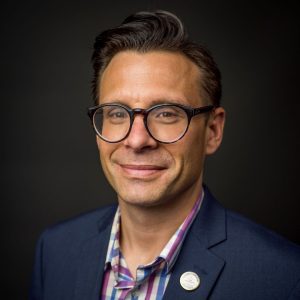It was my privilege to speak recently at the 150th anniversary celebration of the St. Joseph Baptist Association in Northwest Missouri. The association was founded in 1871 and now has 46 cooperating churches. They have maintained a consistent witness for the gospel, cooperated on multiple ministry efforts, planted churches, and otherwise extended the gospel in creative and effective ways. My first pastorate from 1982-89, at Green Valley Baptist Church, was in this association. It was an honor to revisit my ministry from that era and reconnect with several leaders and church members from 30 years ago.
This experience reminded me of the durability of churches and ministry organizations. During tumultuous times it’s natural to question our durability and wonder if quivering foundations will lead to collapsing ministries. Not necessarily. Ministry organizations, particularly churches, are remarkably resilient. Why?
Despite the contemporary emphasis on the importance of leadership, that’s not the answer. Neither are financial resources, program development, or any other human-generated aspect of our work. Christian ministries are durable because God sustains them. Leaders have a role, to be sure, but our role is limited to prioritizing and staying centered on God’s sustaining resources.
Christian ministries have durability if they rest upon, draw strategy from, and obey the Bible. They last if they remain centered on Jesus. They last if they depend on the Holy Spirit to empower their work. They endure as long as the gospel remains their central message—sharing it, living it, and uniting around it. Word, Jesus, Spirit, gospel—these are the eternal aspects of our work that sustain us. Churches and ministries that trust these resources will endure. Their durability will outlast internal conflicts, external threats, and the ups and downs of leadership decisions.
While leaders should do all they can to bring the best training, strategy, and practices to bear in every generation, our most important contribution to our organizations is keeping them leashed to God’s resources which sustain his work. Our priority is the Word of God, the person and work of Jesus, the power of the Holy Spirit, and the message of the gospel. If we get these things right, we are building on a solid foundation. If we don’t, what we built won’t last—no matter how strong it may look in the moment.
Durability depends on God’s resources, not our ingenuity. That’s good news during shaky times. We know God will sustain us because his resources provide a sure foundation.
Read More

Hope in Suffering
Gateway student Matt Bodden is an evangelist who is ready to answer the question of suffering with the gospel.

The Gateway Journal of Theology Inaugural Issue
Read all new articles in the inaugural issue of The Gateway Journal of Theology.
Listen
Prophets | Daniel Part 2
Now with the historical portion of Daniel done, Dr. Wegner takes us through the visions of beasts and years. All these figures intending to show us something. What does it all tell us about God?

Theology and Missiology with Dr. Peter Lillback
Rev. Dr. Peter Lillback, president of Westminster Theological Seminary, PA, and founder of The Providence Forum, joins Dr. Hopkins to chat about the inclusion of young children during the main services in church, the religion and theology of George Washington, and the

Watch

Jonathan Edwards and the Asbury Revival
Chris Chun and Chris Woznicki discuss the signs of true revival, signs of the work of the Holy Spirit, and why it is important to critically assess the characteristics of revival in a spirit of charity.

Jonathan Edwards and the Baptists | Douglas Sweeney, Nathan Finn and Chris Chun
Dr. Douglas Sweeney and Dr. Nathan Finn joined Dr. Chris Chun for a panel discussion on Jonathan Edwards, recorded live at the SBC Annual Meeting in Anaheim.




